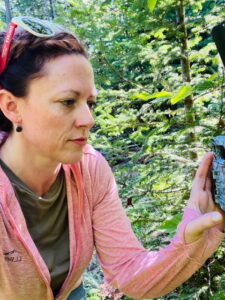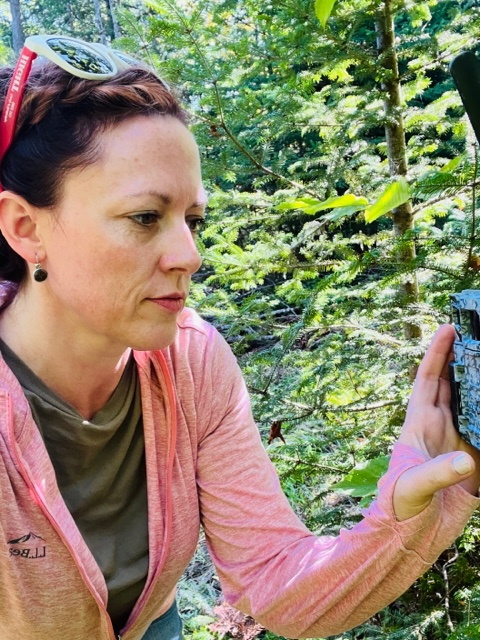Seven trail cameras with my name on them are strategically placed on our property. Most I keep out year round to track which animals are moving through. Once deer hunting season gets closer, Dad puts his cameras up and we have a pretty good idea of which animals are around and who thinks they can trespass on our land and not get caught. But in recent months, more states have banned the use of trail cameras questioning their use and wondering if trail cameras should be illegal?

However, in some states, the use of trail cameras is considered unethical and they have been banned. In Arizona and Nevada, trail cameras can not be used for hunting purposes. The Arizona Fish & Game Department explained their decision saying that it violates fair chase and goes against the traditions of hunting. Montana also prohibits the use of cameras ‘that transmit images remotely’ while hunting.
In August, Kansas passed a ban of all trail cameras placed on state owned land. “As the number of trail cameras on the landscape increased, so did the number of reports made by constituents citing camera theft and misuse,” the assistant director of Kansas Department of Wildlife and Parks Ryan Stucky said. “There were also concerns about trail camera users disturbing wildlife with frequent visits to check on those cameras.”
New Hampshire’s law bans the use of live-action cameras to hunt stating that: no person shall take, or attempt to take, a game animal or fur-bearing animal within the same calendar day of remotely viewing any image or video of that animal from a game camera in that area. When I checked this with a friend of mine in New Hampshire, he confirmed the law and said, “This state is screwed up.”
Are trail cameras fair? Is technology moving us away from fair chase hunting? Some of these restrictions I can understand, especially on public property. However, if the New Hampshire law applied to Maine, I wonder if I would have had to turn off the cell camera when I saw that my bear was trapped and wait until the next day to shoot him instead of the three hours that it took from the time we got the photo until the time I put my tag on him. The shorter period of time seems less inhumane.
Only time will tell how these restrictions and laws will play out across the country. We may see laws moving us back to swapping out SD cards every couple of weeks or getting fed up altogether and taking them out of the woods (if nothing else, I would keep mine to track trespassers). As technology helps us get a better understanding of what is in the woods and fields around us, our love and slight dependence on these cameras may come back to hurt us.










I use my cell cameras before season to see what’s around. I pull them out in late September. I do keep my non cell cameras out year-round. Just like anything else, they can be abused. There is a guy near me that has cell cams all over his property. LOTS of them. He rarely sits in a stand unless he sees that his “target” buck is on his feet and he sees where it’s going. He even has a mobile stand on wheels that he can move at will. I’ve seen him get down from a stand and run to get into another one, obviously with info sent to him by a camera. I know this is a small majority that do this, but it’s not fair chase in my opinion. My hunt is about the outdoor experience. Not technology assisting me through my phone, but to each their own I guess. It’s a new era I guess.
That is absolutely not fair chase. Waiting to see the deer moving and then running out there with a mobile stand… nope. I sit for 12 hours every time I am in the woods (assuming I dont shoot something) I am all for trail cameras but you have to put your time in.